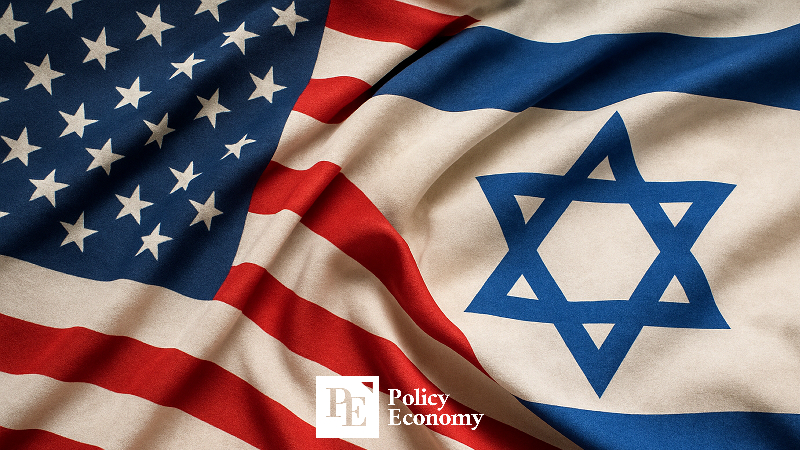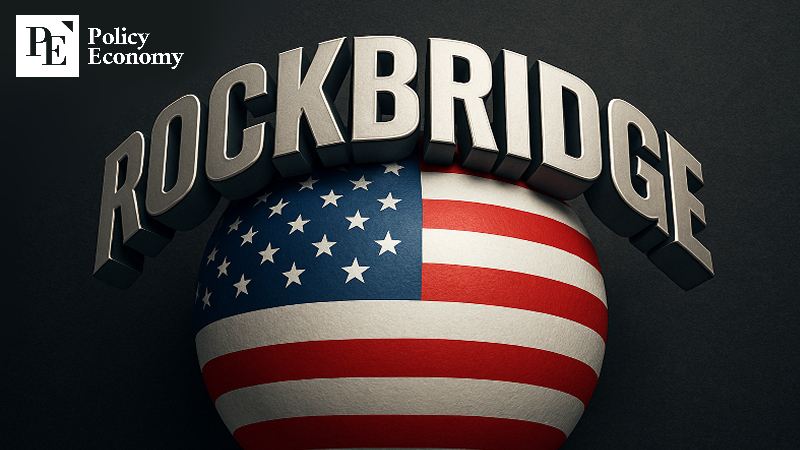U.S. Airstrikes on Iran, a Calculated Move to Protect National Interests
Input
Modified
Netanyahu: “Thanks to Trump for Striking Iran’s Nuclear Facilities” U.S. Pressures Iran — Tightening the Noose on China as Well Was the 'Rockbridge Network' Behind the Decision to Launch the Airstrikes?

Israeli Prime Minister Benjamin Netanyahu expressed gratitude to U.S. President Donald Trump for his decision to strike three Iranian nuclear facilities. Following the successful completion of the operation — carried out through close coordination between the two countries — Netanyahu credited the United States, which had played a key “partner” role in the mission.
However, experts caution that Israel’s national interests did not solely drive President Trump’s actions. On the contrary, some analysts argue that Trump may have leveraged Israel to tighten pressure on China, suggesting a broader strategic motive behind the operation.
U.S.–Israel Joint Strike
According to Reuters and other foreign media on the 21st (local time), Israeli Prime Minister Benjamin Netanyahu expressed his appreciation for U.S. President Donald Trump’s decision to strike three Iranian nuclear facilities. In a speech that day, Netanyahu stated, “History will remember President Trump as the one who acted to stop the most dangerous regime and the most dangerous weapons in the world.” He added, “At a time when the Middle East stood at a crossroads, President Trump’s leadership created a historic turning point, guiding the region and beyond toward a future of prosperity and peace.” Concluding his remarks, Netanyahu offered direct thanks: “The people of Israel and I are grateful to you.”
Earlier, President Trump had posted on his social media platform, Truth Social, declaring, “We have completed highly successful strikes on three of Iran’s nuclear facilities: Fordow, Natanz, and Isfahan.” In reality, a squadron of U.S. Air Force aircraft entered Iranian airspace in the south on the 21st, deploying 14 GBU-57 bunker-buster bombs, along with 75 precision-guided missiles, using B-2 stealth bombers to target the three sites. Notably, no Iranian fighter jets or surface-to-air missiles were launched in response.
According to U.S. media outlet Axios, the two countries had been in close consultation over the operation since the previous week. President Trump approved the strike on the 17th and began in-depth discussions with Prime Minister Netanyahu. When Netanyahu reportedly asked, “How can we assist the operation?” Trump requested the dismantling of Iran’s southern air defense systems, clearing a path for bombers to reach their targets at Fordow, Natanz, and Isfahan. In the following days, U.S. Vice President J.D. Vance and Secretary of Defense Pete Hegseth remained in contact with Netanyahu and Israeli Defense Minister Israel Katz, coordinating a series of preliminary airstrikes aimed at weakening Iran’s anti-air defenses.
China Shaken by the Fallout of the Conflict
Experts believe that President Trump’s cooperative posture toward Israel masked a deeper strategic maneuver targeting China. One diplomatic analyst explained, “On the surface, it appears Trump acted according to Netanyahu’s will — but in reality, it’s more complex. By enabling Israel to undermine Iran’s national power, the U.S. indirectly delivers a blow to China, which maintains close ties with Tehran.”
If the conflict between Israel and Iran escalates, China’s energy supply chain could face severe disruption. According to energy research firm Kpler, over 90% of Iran's crude oil exports currently go to China, with most of it being delivered to small, private refineries in Shandong Province. These independent refiners, operating outside the state-owned oil sector, have actively purchased Iranian oil since 2022, despite it being subject to Western sanctions. They rely on the relatively cheap crude to maintain profitability.
However, if the Strait of Hormuz is blocked or if Israel attacks Iran’s oil export infrastructure, this distribution network could be severely threatened, possibly bringing Iranian crude exports to a halt. As a result, Chinese refiners would suffer major aftershocks, with cascading impacts across the country’s energy market.
The economic losses from war would also be significant. China and Iran previously signed a 25-year comprehensive cooperation agreement, which includes major investments in energy and infrastructure to support Iran’s economic development. Chinese capital has been heavily involved in Iran’s oil and gas development projects, and a large-scale destruction of energy infrastructure could mean that much of China’s investment is wiped out.
Should Iran suffer severe damage in the war, its military cooperation with China is also likely to weaken. If the U.S. and its allies impose comprehensive sanctions on Chinese companies involved with Iran, it could cripple China’s military investments and arms trade with Tehran. If China continues to support Iran actively, it would face heightened economic sanctions and military pressure from the West. This could, in turn, undermine the anti-American alliance between the two and narrow China’s diplomatic maneuvering space on the global stage.

Is the U.S. Political Powerhouse 'Rockbridge' Involved in the War?
Some speculate that behind the U.S. government’s favorable stance toward Israel lies the influence of Jewish capital, suggesting involvement by powerful interests within Washington. A key focus of this theory is the Rockbridge Network, said to be backed by Jewish funding and wielding considerable sway over the American political establishment.
Rockbridge is a political fundraising organization founded in 2019 by Vice President J.D. Vance and conservative columnist Christopher Buskirk. The group was created to build a new conservative political foundation, replacing what they viewed as a waning traditional Republican Party. Membership requires a USD 25,000 fee, while lifetime membership costs USD 1 million. Rockbridge reportedly spends up to USD 75 million annually on various political activities, including candidate support, shaping public opinion, and voter mobilization.
Rockbridge rose to prominence during last year’s U.S. presidential election. In April, Trump’s campaign found itself cornered in the Republican primaries as its funds dried up. Traditional Republican donors, such as the Koch Network, had shifted their support to Florida Governor Ron DeSantis and former U.N. Ambassador Nikki Haley. That’s when Rockbridge stepped in, injecting massive campaign funds into the Trump camp and recommending Vance as Trump’s vice-presidential running mate. It was Donald Trump Jr., a Rockbridge member, who acted as the bridge between the network and his father.
Rockbridge’s ability to exert such extensive political influence stems from its high-profile membership. Among the most prominent figures is Peter Thiel, current chairman of Palantir and long-time supporter and mentor to Vice President Vance. Thiel is widely regarded as one of the key power brokers behind Rockbridge. In January 2024, Palantir signed a formal strategic partnership with Israel’s Ministry of Defense, playing a central role in the Gaza conflict by supplying AI and data analytics platforms that supported intelligence operations of both the Israeli Ministry of Defense and the IDF (Israel Defense Forces).





















